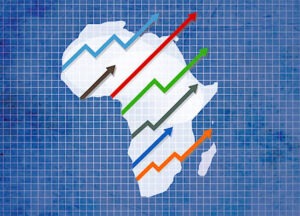Welcome to this post on the factors contributing to the economic growth of African countries, via Afrokonnect.
The African continent is advancing from its previous “life” which was filled with economic dependency hence leading to exploitation from foreign powers to an era of remarkable transformation.
Nations across the African continent are witnessing unprecedented growth leading to an influx of foreign investment.
The African continent is gradually shifting the narrative of a “needy continent” to that of an “autonomous & prosperous continent”. This article is designed to analyze the factors contributing to the economic growth of African countries, and the sectors driving this resurgence. Here are 8 African Countries to Live.
Reforms and policies that is shaping the new economic landscape of the African continent
The transformation of Africa’s economic landscape in recent decades can be attributed to a series of critical reforms and changes in policy that have been implemented and adopted across the continent, namely:
1) Liberalization of Economies:
Many African states have shifted their economic focus from Socialism -> Capitalism.
This involves the privatization of government-owned enterprises and the deregulation of key sectors in the country.
Countries like Nigeria, Egypt, and South Africa have adopted this method hence leading to increased economic activities and the influx of foreign investments in their respective economies.
2) Improving Regulatory Frameworks:
Various efforts have been made by several African countries to simplify business registration processes, enforce property rights, and facilitate easy access to credit.
Countries like Rwanda have implemented these reforms hence leading to an improvement in its rankings in the World Bank’s Ease of Doing Business Index.
3) Monetary and Banking Reforms:
These reforms have been pivotal in stabilizing various African economies.
The implementation of effective monetary policies have been crucial in controlling inflation and fostering a more stable economic environment.
Countries like Ethiopia & Rwanda have benefitted from these reforms.
4) Infrastructure Development projects:
The African Union Agenda 2063 includes ambitions infrastructure projects like the Trans-African Highway and new railway lines.
Such projects will improve connectivity within the African continent, boost trade, and open up rural areas within the continent to economic opportunities.
5) Trade Policies and Regional Integration:
Many African countries have been active in various regional economic communities such as the East African Community (EAC), the Economic Community of West African States (ECOWAS), and the Southern African Development Community (SADC).
These communities have been crucial in harmonizing trade policies and creating a more unified market on the African continent.
Key Drivers of Economic Growth on the African Continent
1) Natural Resources and Commodities:
Africa is a continent endowed with numerous natural resources ranging from precious minerals to metals.
Countries like Nigeria, Angola, and Algeria have properly utilized their abundant oil reserves hence positioning themselves as significant players on the global stage.
Other countries such as Botswana and the Democratic Republic of Congo have leveraged on the abundance of diamond in their countries to bring wealth.
2) Agriculture:
Agriculture was, is, and will be a cornerstone of Africa’s economy.
The profession provides jobs for a large percentage of people across various countries on the continent especially those in rural areas.
The shift from subsistence farming to a more commercial and technologically driven agricultural practice have increased the productivity of the sector and contributed immensely to agro-based industries and economies.
Countries like Ethiopia and Kenya have used agriculture to add value to their economies, reduce imports, and increase food security in their countries.
3) Technological Innovation:
This has been one of the major drivers responsible for reshaping the African continent.
For example, the adoption of mobile technology has been crucial in innovations such as mobile banking and fintech solutions.
This has been pivotal in the attempt among various African countries to provide banking services to unbanked populations.
Cities like Nairobi, Cape Town, and Lagos have leveraged on technology to address challenges in health, business and education.
4) Infrastructure Development:
The recent wave in infrastructural development across the continent has been crucial in driving economic growth, and attracting foreign investment.
Significant investments such as the construction of roads, airports, railways, etc. have stimulated growth in various African countries.
Projects such as the Grand Ethiopian Renaissance Dam and the Tanzanian standard gauge railway have contributed to the economic development of their various countries.
5) Policy Reforms:
Significant improvements in policies have fostered a more business-friendly environment.
These reforms have contributed to the rise of local and international investments in various African countries.
Challenges to the economic growth of African countries
1) Political Instability:
Many African countries suffer political instability which are derived from various sources such as ethnic tensions, political corruption, and struggles for power.
This can act as a deterrent to foreign investments and hinder economic activities within a country.
For example, frequent changes in government without a peaceful transition can lead to inconsistent economic policies.
Also, corruption can also aid the retarding of the economic growth of a country.
2) Infrastructure Deficits:
Despite the infrastructural transformation witnessed in some African countries, many parts in Africa still remain inadequate.
This has hampered business operations in various countries and also deterred foreign investments.
For example, the constant lack of electricity in various African countries have contributed to a decline in industrial activities and has limited the hours that businesses can operate effectively.
3) Educational Gaps:
Many African countries have huge deficits when it comes to the provision of quality education to the populace.
This has often led to the creation of a workforce which lacks the necessary skills to propel industries forward.
4) Economic Dependency on Commodities:
Many African economies are heavily dependent on a narrow range of commodities which leaves them vulnerable to global price fluctuations.
When prices drop, as seen in the oil markets in recent years, economies such as Nigeria and Angola suffer revenue losses which leads to budget deficits hence retarding the economic activities in such countries.
5) Climate Change:
The issue of Climate Change have severely affected African countries which are dependent on agriculture.
Changes in weather patterns have devastated crop yields and led to natural disasters such as drought.
Conclusion about Economic growth of African countries

Africa’s journey to economic growth is marked by both achievements and challenges. These challenges with persistent efforts can be addressed to face hence transforming Africa’s economic landscape to one marked by prosperity and opportunity.
This will ensure a prosperous future for the African continent. Thanks for reading and I hope to see you again on Afrokonnect.ng.















